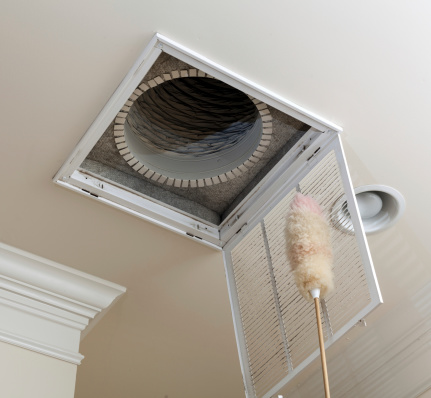What consequences ensue from the continued use of a dirty filter in your HVAC system? The performance of your HVAC can be reduced by a dirty filter. Your family’s air quality will deteriorate as a result of the air passing through a dirty HVAC filter. Many things affect the life of your HVAC system filter.
Household Pollutants
Every household has the inherent means for manufacturing its own air pollution. If the occupants smoke in the home, make fires in the fireplace, spray air fresheners, use pesticides to keep the pests at bay or use chemical cleaning products, the air quality is being compromised. They may also have a pet, releasing pet dander into the air. Asbestos, carbon monoxide, mold, mildew and dust all emanate from the home and all must pass through the HVAC filter.
Clogged Filters
A clogged air filter can reduce the performance of your heating, ventilation and cooling system, preventing it from reaching the ideal summer and winter temperatures in your home and reducing the air quality. This overworking can result in increasing your utility bills and burning out the motor and other working equipment of the HVAC system over time. And, most importantly, using a dirty filter only re-circulates unclean air throughout the home.
Types of Filters
Depending on the performance desired, your filter could leave the air quality in your home at different levels. The standard guideline is the Minimum Efficiency Reporting Value or MERV level. The MERV level indicates how well the filter will perform in capturing impurities, dust and allergens in the air. The range of protection starts at 1 and goes up to 16. Most families who use a filter with a MERV rating below a 12 obtain a low performance product, while a MERV rating of above a 12 indicates a much higher performance, keeping pollen, mold, mildew, allergens, dust, debris, and other unwanted pollutants out of the home’s air.
Check Your Air Filter’s Condition
Using a filter with a higher MERV rating also means the filter is capturing more pollutants that are blocking the flow of air through the filter over time. Checking the filter every month to 45 days can ensure the filter will be changed at the right point in time. The homeowner can choose to change it once every 3 months or 6 months or even once a year, if the filter needs changing less frequently. Changing the air filter when needed keeps the air in the home at the highest level of cleanliness.
Keeping the filter clean by replacing it regularly is especially beneficial for families with asthma and/or allergy sufferers, as well as members who have other breathing difficulties. Of course, the utility bills will be less because the HVAC system does not work as hard with a clean filter. And lastly, the HVAC system has a longer life span when it works only as hard as the manufacturer intended by continually replacing the dirty filter with a clean filter.

